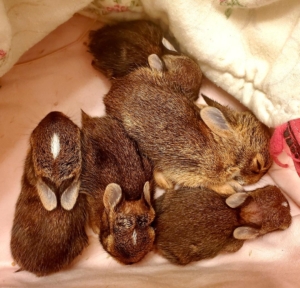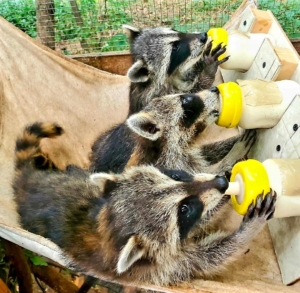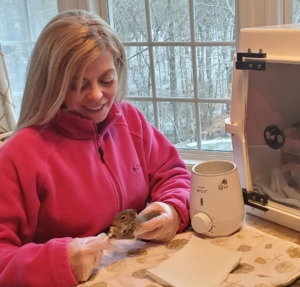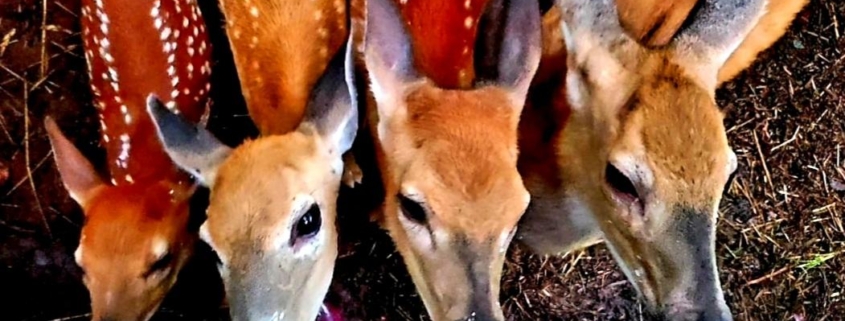The Message is Simple
All photos provided by Annie Palermo
According to the inimitable Steve Irwin, “The message is simple: love and conserve our wildlife”. Annie Palermo (FMN Fall 2021) passionately lives this message on a daily basis as a volunteer wildlife rehabilitator with the Wildlife Rescue League (WRL).

Cottontails
Wildlife Rehabilitators are individuals, organizations, or animal hospitals that have obtained state and or federal permits, to care for injured, ill, and/or orphaned wildlife with the ultimate goal of successfully releasing them back into the wild. Migratory bird rehabilitation requires a federal permit.
Each year in Virginia, rehabilitators work tirelessly to provide thousands of animals a second chance at life, taking special care to raise them in a safe and natural environment.

Racoons
Annie has recorded 250+ hours to S081 Animal Wildlife Rescue League by providing valuable wildlife rehabilitation services to about 25 animals over the course of the year. Her passion and caring spirit was evident in her voice as we talked. You quickly realize she has a real heart for the animals in her care. Annie has been a rehabilitator for 3 years, personally providing rehabilitation services to fawns, squirrels, cottontail bunnies, and raccoons. Others in the network provide services to opossums, foxes, turtles, and a myriad of other animals. She said, “25 animals a year may not sound like many but consider that most babies need to be fed every 2 hours in their early stages of development, it becomes quite time consuming – but time well spent”.
The Wildlife Rescue League (WRL) provides licensed rehabilitators throughout Northern Virginia and surrounding areas. It works with a network of volunteers, wildlife centers, animal shelters, humane societies, nature centers and veterinary hospitals to provide life-saving work for wildlife in need. Virginia Department of Wildlife Resources (DWR) is the permitting agency for WRL.

Annie feeding an orphaned squirrel
The busiest season for rehabilitators is February through October, but some animals must be over-wintered. Most rehabilitators work from home on a volunteer basis, personally paying for housing, supplies, medication, and species-specific nutritional requirements.
Annie encourages that if you, or anyone you know, has a passion for wildlife animals and is interested in volunteering on a helpline, as a transporter, caregiver, or rehabilitator please contact one of the organizations below who will be happy to talk to you about starting a highly rewarding journey.
Wildlife Rescue League Services –
Animal Education and Rescue Organization –
Virginia Department of Wildlife Resources –




